Francis Fukuyama: ‘Looked like Harris did well’
Lianhe Zaobao video producer Audrey Jiajia Li interviewed Francis Fukuyama, Olivier Nomellini Senior Fellow at Stanford University’s Freeman Spogli Institute for International Studies (FSI), for his views on the upcoming US election and its implications for global dynamics, particularly US-China relations. The following is an edited transcript of the interview.
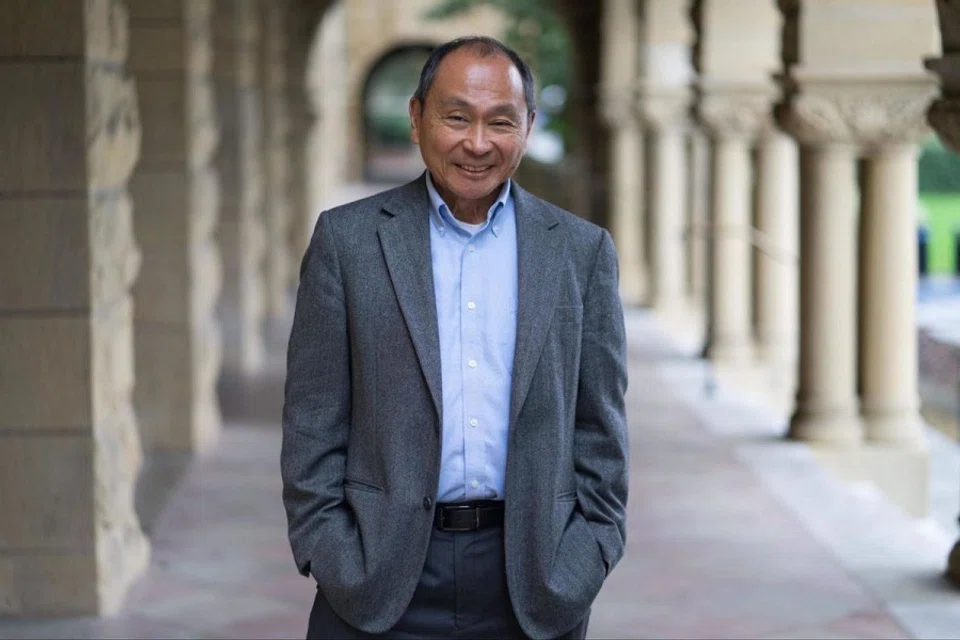
The first US presidential debate on 10 September following the Democratic Party’s candidate change captured global attention. Unlike former President Donald Trump’s decisive victory over President Joe Biden’s disastrous performance in June, this time the 78-year-old faced Vice-President Kamala Harris, 19 years his junior, which reversed his prior age advantage. Confronted by Harris’s sharp, methodical attacks, Trump appeared angry and uncharacteristically off-balance, continuously taking the bait.
In an interview with ThinkChina on the eve of the debate, Francis Fukuyama, Olivier Nomellini Senior Fellow at Stanford University’s Freeman Spogli Institute for International Studies (FSI), emphasised the high stakes of this encounter. He noted that many American voters were eagerly anticipating Harris’s debut, and that her performance could swiftly influence both the polls and the upcoming election. He also took questions on the election and its implications for global dynamics, particularly US-China relations.
After arriving in Kyiv for the annual Yalta European security conference, Fukuyama messaged the reporter, stating: “ Looked like Harris did well.”
Kamala’s strategy
Audrey Jiajia Li (Li): Kamala Harris emphasises that she represents a new way forward, adopting a strategy of embracing Biden’s political legacy while framing both Biden and Trump as an “old page” and stating “We’re not going back”. Will this approach be effective?
Francis Fukuyama (Fukuyama): I think it’s a clever political strategy. Whether it’s going to lead to different policies is not at all clear because she hasn’t really defined exactly what ways she’s going to differ from Biden. I I think that a lot of that strategy just revolves around the fact that she’s younger than Biden and that was the major liability that Biden had. And now that’s gone away. And so, you’ve got a much younger, more vigorous candidate.
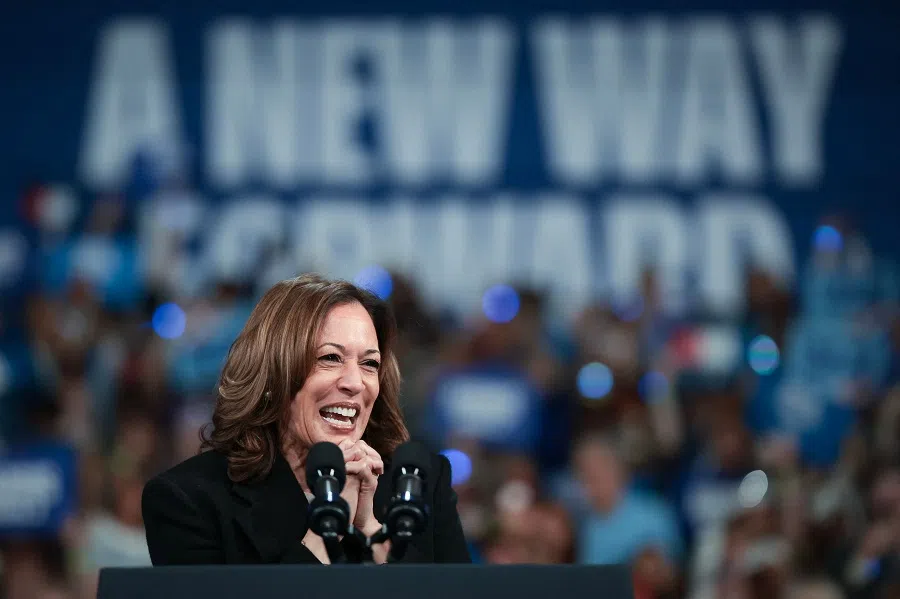
Li: If Harris is elected, she would make history in several ways. However, she has downplayed and avoided discussing her race and gender in the latest interview. Why is that?
Fukuyama: I think that she wants to avoid a mistake that Hillary Clinton made. People really don’t like this emphasis on identity politics. The fact that you always have to pick a woman or a person of colour regardless of how good they are. And she’s been quite careful to avoid that. So she hasn’t talked at all about how she would be the first female president or the first black female president, because I think that would turn off a lot of people.
And I think that’s probably a good strategy. So, although it’s true that she is gonna set these precedents, I think that what she’d like to show is that she’s being elected on the basis of what she stands for rather than who she is.
US ready for a woman president?
Li: Eight years ago, when I interviewed people about the US election in some swing states, many of them expressed dislike for Hillary Clinton just because she was a woman, which seemed unfair. Some said she was too strong-willed and people didn’t like ambitious women, while others felt a woman in the White House might be too weak, not “iron fist” enough. Are Americans now ready to embrace a female president, especially a woman of colour?
I think they would’ve been willing to vote for a female candidate eight years ago. It just had to be the right candidate. I think Hillary Clinton had a very unlikeable personality that was unique to her.
Fukuyama: I think they would’ve been willing to vote for a female candidate eight years ago. It just had to be the right candidate. I think Hillary Clinton had a very unlikeable personality that was unique to her. It wasn’t because she was a woman. She just has a very artificial manner about her. She typically doesn’t smile. And then when she does smile, you can tell that it’s because one of her advisers was saying, you really ought to smile at this point. And she just was not a very kind of natural person that connected with people very easily.
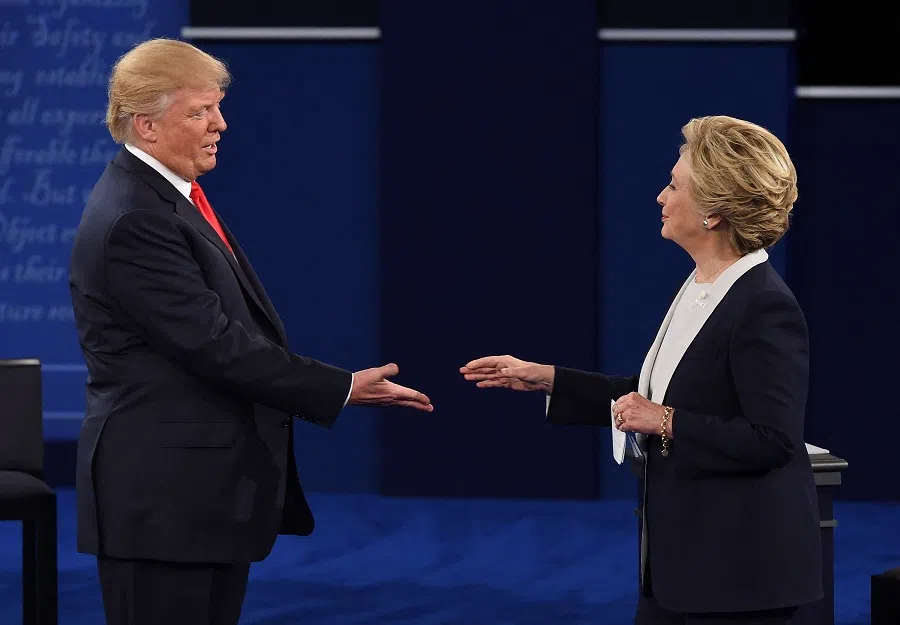
And I think Kamala Harris doesn’t have that problem. I think she’s much more comfortable. She doesn’t seem as inauthentic as Hillary Clinton did. It was kind of illustrated by this thing that Hillary Clinton said early on when she was the first lady.
She made this comment to the extent that I could have stayed at home and just baked cookies for my children, but I decided to go out and have a career. And that instantly alienated every stay-at-home mother in the country because, she was, look, she was this big powerful lawyer, and she was looking down at other women that weren’t as powerful as she was.
And I think that characterised her early on, and she was never able to get past that view, that she was really contemptuous of people that weren’t well educated, hard-charging professionals like her.
Border issue a weakness for Democrats
Li: Some critics argue that Harris has achieved little in her three and a half years as vice-president, particularly in addressing illegal immigration issues at the southern border, which remain unresolved. Could this be the biggest weakness for her?
Fukuyama: I think that the southern border is a weakness for Democrats. But, the vice-president is not responsible for that policy. The president is responsible, and the decisions made about the border were really ones that he took, not her. And actually, if you look at it, more minutely, she was not given responsibility for the border.
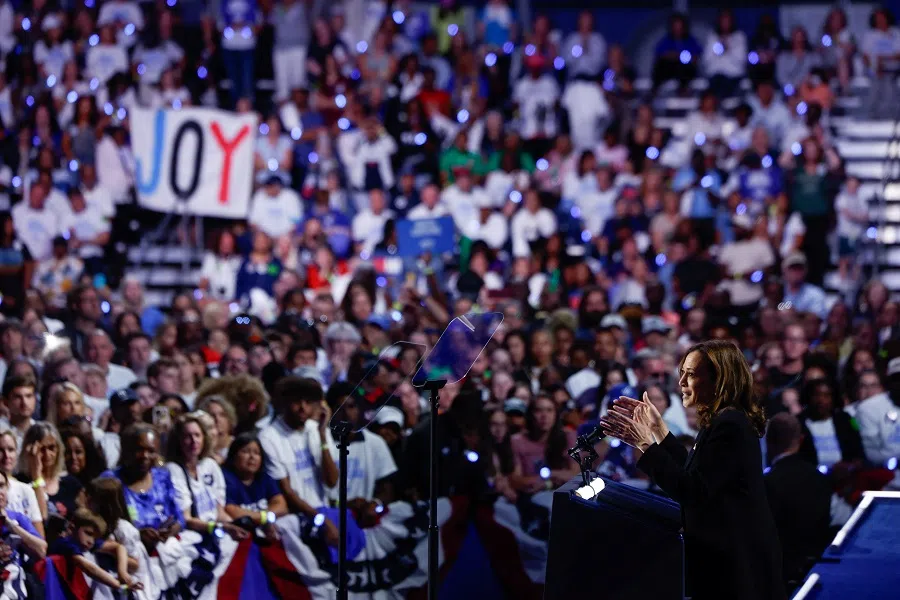
She was given responsibility to try to deal with the underlying causes of migration, meaning poverty in Latin America, crime, narco trafficking, this sort of thing. And those are really unsolvable problems. So it’s not surprising that she was not able to do much because vice-presidents really don’t have any authority. And the problems she was dealing with really don’t have solutions.
... it’s not hard to be better than Trump in terms of economic management, because I think if he actually were elected president, you would immediately have a huge increase in inflation.
Economy actually Donald Trump’s Achilles heel
Li: Then what’s her weakness? On economy? After all, Trump bragged about his experiences when it comes to the economy.
Fukuyama: Compared to Trump, almost anybody would be better. In general, people trust the Republicans more with economic policy than the Democrats. But Trump is not a normal Republican. I mean, he’s way too often a different universe. He is a protectionist. He wants to impose a 10% tariff on every foreign made goods coming into the United States. He just announced that he’s gonna penalise countries that don’t use the dollars. He’s just full of these economic ideas that make no sense whatsoever. And so it’s not hard to be better than Trump in terms of economic management, because I think if he actually were elected president, you would immediately have a huge increase in inflation.
He claims that if you impose a tariff on an imported product, that you’re forcing the other side to pay, but you’re actually forcing American consumers to pay. Everything’s gonna get more expensive. And he simply doesn’t understand that. So I would say that the economy management of the economy is really not his strong suit. The American deficit went way up under his presidency. He really has not been at all fiscally responsible. And so I think that is usually one of the arguments that Republicans use, to show that they’re better at managing the economy, but that simply doesn’t apply to Donald Trump.
Republican plans to end the so-called ‘deep state’
Li: If Trump is elected, what might the scenario look like in the US? You mentioned that the Republican Party seeks to end the so-called “deep state”, replacing civil servants with loyalists. What impact could this have?
Fukuyama: Right. The announced purpose of this is to destroy the bureaucracy. And I think that’s what it’ll do. You’re going to fire a lot of people with expertise and years of experience and replace them with people whose main qualification is simply loyalty. And so you’re gonna go backwards in time. I think for an Asian audience, this is particularly crazy because, the one thing that is the deepest, in many ways the deepest facet of Chinese civilisation is bureaucracy.
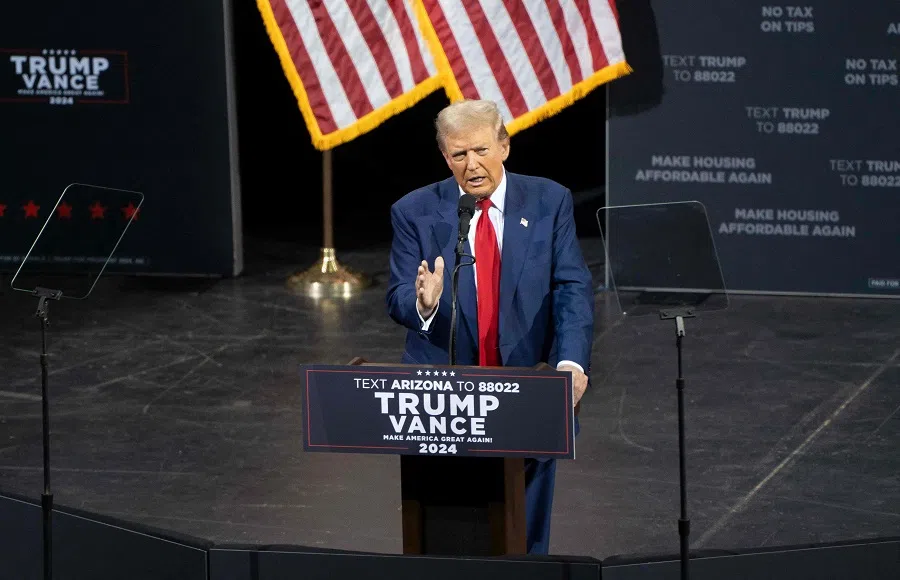
And the idea that people that run the government ought to be educated and competent and chosen for their ability. And this is going in the exact opposite direction, where your political loyalty is your main criteria, and you really don’t care about professionalism or expertise.
So I think it’s going to be a huge setback for the American government. Americans were always very distrustful of bureaucrats and of the state in a way that people in Asia simply are not. And this is just a manifestation of what I think is a pathological distrust of the government.
Li: If Harris is elected, could we see a repeat of the January 6 Capitol riots? Would Trump be willing to accept defeat?
Fukuyama: He’s been asked that on numerous occasions in the last year, and he always gives the same answer. He says “I’m not gonna accept an unfair election”. And his definition of an unfair election is one that he loses. And so, especially if the election is close, I think that yes, you will see a repeat of what happened in 2020, that Republicans in all the swing states are going to start contesting the outcome of the election. You could have demonstrations, riots, violence, all sorts of things could happen, because I don’t think that Trump is really willing to accept a loss in this case.
Polarisation in the US
Li: I think that’s because the US is increasingly polarised. Is there a possibility of reconciling these divisions? What could this polarisation mean for the long-term health of American democracy?
Fukuyama: I think it’s not going to be necessarily permanent. First of all, the polarisation is not symmetrical. Although you do have an extreme left in the Democratic Party, it’s pretty weak. It really doesn’t represent the main thrust of the Democratic Party.
Whereas Trump has taken over the entire Republican Party to the point that nobody can criticise him without fearing a backlash, a grassroots backlash. And I think that that’s not — in the long run — a good governing strategy. It’s not a good political position. So if the Republicans, having gone down that road, keep losing elections, at some point, they’re gonna realise that this is not a way to retain power.
I mean, in fact, of the four big elections we’ve had, 2016, 18, 20 and 22, the Republicans have lost the popular vote in every single one of them. They only won the presidency in 2016 because of the electoral college. But,the Democrats have really outvoted them in virtually every election. And so at some point, they’re gonna realise this is not a way to hold onto power.
Li: In your article, you mention that although Trump is ageing, the younger generation of Republicans influenced by him, represented by figures like JD Vance, could potentially occupy the White House and Congress in the future, which would have far-reaching effects. And that’s Trump’s real legacy. I think ordinary Trump supporters also represent a significant political force. As Trump exits the stage, will this political force including both politicians and grassroots supporters continue to exist independently?
JD Vance seems like a kind of disaster. He takes very Trump-like positions, but he’s not skillful, he’s not funny, he’s not entertaining.
Fukuyama: Well, the grassroots support is gonna be there for a long time. It’s something like 30-35% of the total electorate. So it’s a major part of the Republican base, but it’s really not anything close to a majority of the country, and they’re not gonna go away. But I think it’s interesting that Trump has had a lot of imitators in recent years, and absolutely none of them has been terribly good at getting the kind of loyalty that he has.

JD Vance seems like a kind of disaster. He takes very Trump-like positions, but he’s not skillful, he’s not funny, he’s not entertaining. And he doesn’t seem to be gathering much support. A lot of other people, Ron DeSantis was once pushed as an alternative to Trump. He failed, Kari Lake in Arizona is an even more extreme version of Trump than Trump himself, and she is way down in the polls. So I just think, there is a popular basis for Trumpism that is driven by Republican voters, but it’s also mobilised by Trump himself. And once he disappears, I’m not sure that you’re gonna see a whole lot of politicians that are as skillful as he is as a demagogue.
Comparing social media campaigns
Li: Regarding the online election campaign, social media used to be Trump’s domain for attracting young voters, but it now seems to have been overtaken by Harris. What are their respective social media campaign strategies, and how have they impacted the election?
Fukuyama: Well, it’s interesting. I think there’s been a recognition in both camps that communications have just changed permanently. That legacy media, like television, is simply not the way to reach younger voters especially. And internet influencers are much more important. Just for example, older democrats like to complain about Fox News, as being the source of a lot of conservative ideology.
But Fox only has like two million regular viewers every night. You have individual internet influencers like Joe Rogan, who’s got 12 million followers that watch his show every week. So there’s been this change where anybody under the age of 30, really, they don’t read newspapers. They don’t watch television news. They get the vast majority of their information from the internet. And so I think it’s natural that both campaigns are trying to make use of influencers and spend their money on that rather than on traditional media. This is a huge generational issue.
People in my generation grew up reading newspapers and watching television, and I think Trump is a product of that, by the way, that’s the way he gets information. He watches television all the time, but that’s simply not the way that people under the age of 30 know about what’s going on in the outside world.
Disinformation and misinformation
Li: Do you think Harris is winning that?
Fukuyama: I don’t know if she’s winning. I think that she is trying to make use of this media much more so than Biden did or previous candidates. Whether that’s effective at actually getting young people to vote is another question. The problem with young people, not just in the United States, but everywhere, is that they tend not to vote.They’re busy, they’re trying to get jobs, getting their education, trying to go out on dates.
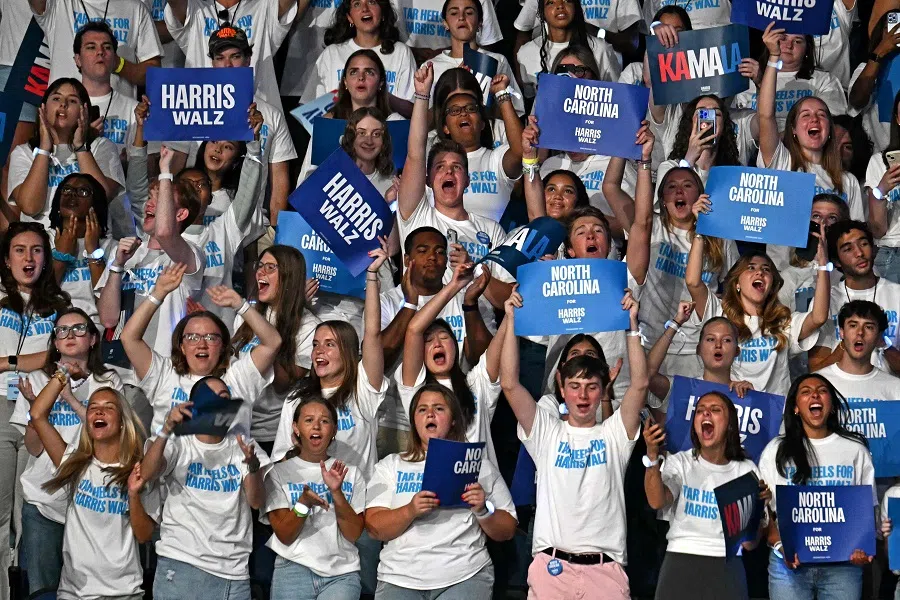
They’re much more interested in that than in politics. And as a result, they tend not to vote. And so motivating them to actually care enough to go vote, in a presidential campaign is quite difficult, but at least they’re more likely to be reached on the internet than they are on traditional media.
Li: Misinformation and disinformation, especially with the advent of AI and deepfakes, can have a significant impact on elections. What are your thoughts on this?
Fukuyama: Yeah. I think that people have been aware of this possibility of deep fakes and AI generated images and voice and so forth for a long time, and I just don’t think it’s been that important. The thing is that the non-AI political rhetoric has been so awful that it’s really hard to see how AI is gonna contribute and make things that much worse.
And I don’t think there’s much evidence that AI, per se, has really had much of an effect on either campaign, generally speaking. The kinds of images that AI can generate right now are pretty easily identifiable, and people are really on the lookout for it. They don’t wanna be fooled by this sort of thing. And so, at least for now, I don’t think it’s that much of a threat.
Li: But misinformation and disinformation in general?
Fukuyama: That’s driven not by AI, it’s driven by people. I think that there are a lot of people, especially on the extreme right, that simply,will only believe what they want to believe. And it’s very hard to produce enough empirical evidence. For example, that the 2020 election wasn’t fraudulent.There’s nothing you can say to them that will convince them.
And it’s not a question of AI, it’s just a question of their kind of human psychology where you end up believing what you wanna believe rather than what is really demonstrated to be true. And that kind of thinking has always existed. But I think that there is probably something about the internet, because you can have your preferred views reinforced by lots of people, instantaneously. And that didn’t always exist in previous time periods.
Global politics and US-China relations
Li: During Trump’s first term, we saw the US withdraw from various international organisations, including the crucial WHO during the pandemic. If he were to return, what would this mean for international organisations, US allies and America’s global leadership?
In general, the Republican Party has been more supportive of Israel than the Democrats. But that doesn’t mean that Trump is going to necessarily back Israel 100% because he also really does not want to get into another war in the Middle East.
Fukuyama: Trump is not a big fan of international organisations. And he wanted to get out of the Paris climate accords. He wanted to withdraw from various arms control treaties. And so I think that will continue. And to the extent that any of these international organisations depend on US participation and support, they’re not gonna get it. And in fact, his trade policy is really deliberately trying to undermine the global trading system.
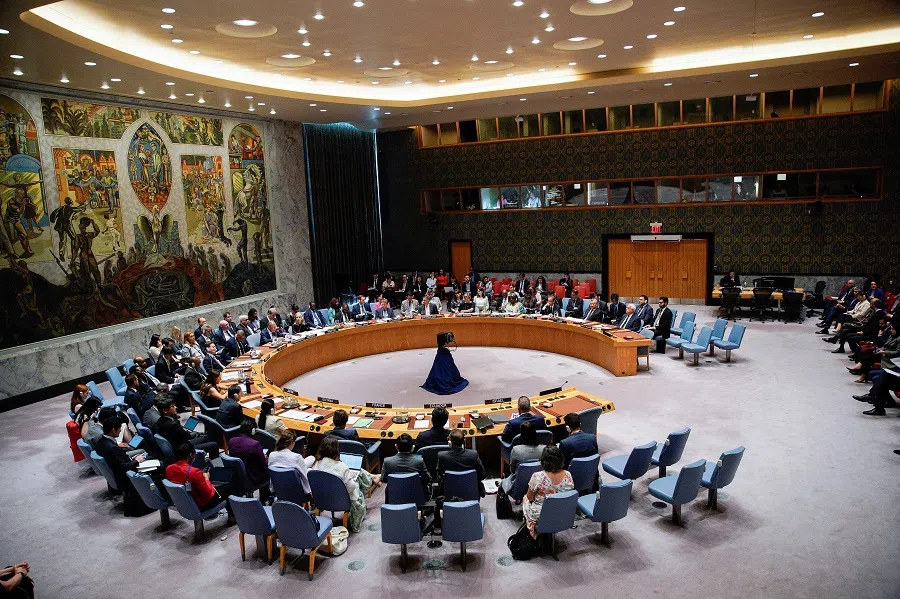
And I think that’s a huge danger because if the United States imposes these tariffs unilaterally, then other countries are gonna retaliate. And you’ll be back to the 1930s where everybody is competing with restrictive tariffs that’s really going to severely damage the whole international trading system. And I think that’s where Trump is gonna push things.
Gaza conflict and Ukraine
Li: During Biden’s presidency, two global conflicts have occurred and are ongoing, with deep US involvement. If Trump were to take office, would he retract support for Israel and Ukraine?
Fukuyama: Ukraine, he certainly would.He’s virtually said as much that he would solve the Ukraine war by basically taking away Ukraine’s military support and forcing Ukraine into a very disadvantageous peace agreement. And the Gaza war is more complicated because there’s a strong base of support for Israel among American evangelicals, conservative Christians.
In general, the Republican Party has been more supportive of Israel than the Democrats. But that doesn’t mean that Trump is going to necessarily back Israel 100% because he also really does not want to get into another war in the Middle East. So, the real tests will come with Iran because a lot of conservative, Republicans have wanted Israel to actually go to war with Iran and get rid of its nuclear programme. And, that’s a danger that a Republican president could permit Israel to go ahead and do that in contrast to the Biden administration, which has been supportive of Israel, but has been trying to use all of its diplomatic leverage to prevent the war from escalating. And I just don’t think you’ll see that kind of diplomacy in a Trump administration.
Li: What about a Harris presidency in that regard?
Fukuyama: In her acceptance speech at the Democratic Convention, she said all the right things, support for Ukraine, support for allies, opposition to powerful dictatorships like China and Russia. Whether she actually goes for the policies that would make that a reality, we just don’t know.
For example, I think that one of the biggest problems Ukraine has right now is the fact that the Biden administration has been putting restrictions on the way that its long range weapons can be used. They don’t want the Ukrainians to attack Russian territory, but in a way, that’s the only way that Ukraine can deter these Russian missile attacks.
So a good question for somebody to pose to Kamala Harris is, would you take those restrictions off and allow Ukraine to use its weapons more fully? And nobody knows the answer to that except for her.
She’s not going to try for a talk with China anytime soon, because that would be a big political risk for her.
US-China relations
Li: US-China relations began to deteriorate during Trump’s first term and this trend continued under the Biden administration. It has been seven years since a US president last visited China, that never happened before. And Harris didn’t go to China as vice-president. How might the US-China relations change if either candidate is elected?
Fukuyama: It’s probably going to change relatively little because there is bipartisan agreement on competing with China and the need to do that. And as you noted, Biden has actually intensified certain of the anti-China policies, increasing tariffs on Chinese electric vehicles to 100%, going after their tech companies.

The whole CHIPS Act was designed to bring semiconductor manufacturing back to the United States. So all of these things were policies that Trump had contemplated, but had actually not gone for. And Biden has done that. And I think that the political logic in the United States would make Kamala Harris do something very similar. She’s not going to try for a talk with China anytime soon, because that would be a big political risk for her.
Li: In both Harris’s and Trump’s acceptance speeches, China was barely mentioned, and the campaign rhetoric has largely ignored China too. Harris only stated the need to ensure that the US, not China, wins in technological competition. Can we say that regardless of who wins, the competition with China will continue as a prevailing theme?
Fukuyama: I feel that this is not a matter of American policy. It’s a matter of Chinese policy. The US and China had a very mutually beneficial relationship, economic relationship up until 2013 when Xi Jinping came to power. Both countries were mostly focused on the mutual economic benefit of their interactions.
But since Xi has come to power, China’s foreign policy has gotten much more aggressive in the South China Sea with regard to just the rhetoric of saying that the United States and the West are declining powers, and that they’re going to be replaced by China in the buildup of the Chinese military.
I think almost all of the deterioration in the relationship is due to behaviour coming from Beijing, and not from Washington. I think Washington is simply responding to these policy changes.
And then, things that have been happening for a long time, like the theft of intellectual property and, kind of, asymmetrical industrial policy where the United States is expected to keep its markets open to Chinese products, but the Chinese restrict their own market against things made in the US or in other Western countries. And that was acceptable for a certain period, but it intensified under Xi Jinping.
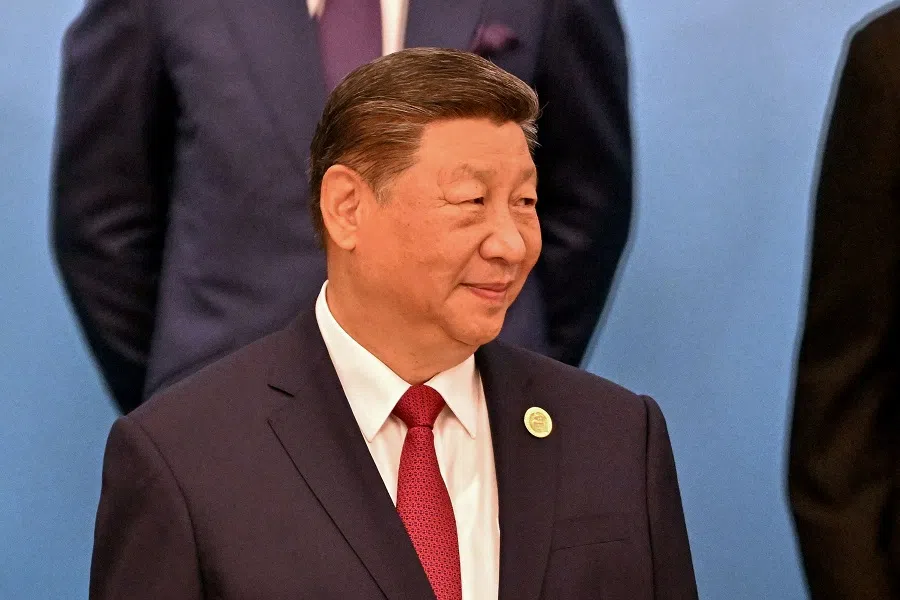
And the internal crackdown on dissent and the desire of the Communist Party to control Chinese citizens has intensified very dramatically under Xi Jinping. And so I think almost all of the deterioration in the relationship is due to behaviour coming from Beijing, and not from Washington. I think Washington is simply responding to these policy changes. So I don’t really think it’s kind of up to Washington to take a different attitude. I think that this is really being forced on the United States by Chinese behaviour.
Because getting into a war with China over Taiwan is a big deal. If you think Russia is a big deal, this is an even bigger one given China’s much greater power. And so, we don’t know how the United States would act under those circumstances.
Taiwan Strait
Li: The next overall presidential term is 2025-2029, which includes two key moments: 2027, when US intelligence predicts China may attempt to reunify with Taiwan by force, and the 2028 Taiwanese presidential election. What impact would the occupant of the White House have on cross-strait relations? Is there a possibility of war?
Fukuyama: It’s hard to answer that because nobody knows what any president would do if China actually attacks Taiwan. Joe Biden has been the most explicit saying that the US would support Taiwan militarily if that were to happen. But it’s not at all clear to me that the support for that really exists in the US Congress or on the part of the American people. Because getting into a war with China over Taiwan is a big deal. If you think Russia is a big deal, this is an even bigger one given China’s much greater power. And so, we don’t know how the United States would act under those circumstances. My own preference is that we don’t have a conflict, but we have a sufficiently strong military posture that China will not be willing to take a risk of starting a conflict over Taiwan.
Li: There is a theory that if China’s economy keeps slowing and there’s complaints inside the country, Xi might try to whip up nationalism by starting a war. Unlikely?
Fukuyama: In that respect, I’m a little bit hopeful that Xi Jinping is actually a relatively cautious leader. He’s much more cautious than Putin. Putin has taken crazy risks at every turn, but Xi so far has not done that. And even though there may be people in China that would want to act in 2027 or whatever, I’m not sure that the senior leadership in the Communist Party would be willing to risk everything basically, for the sake of reincorporating Taiwan.
So, based on historical precedents, you could find cases where a declining economy led to that kind of aggressive behaviour and you can find examples where it led to more cautious behaviour. And I think that we just don’t know how that’s gonna play out, because both of those scenarios are plausible.





